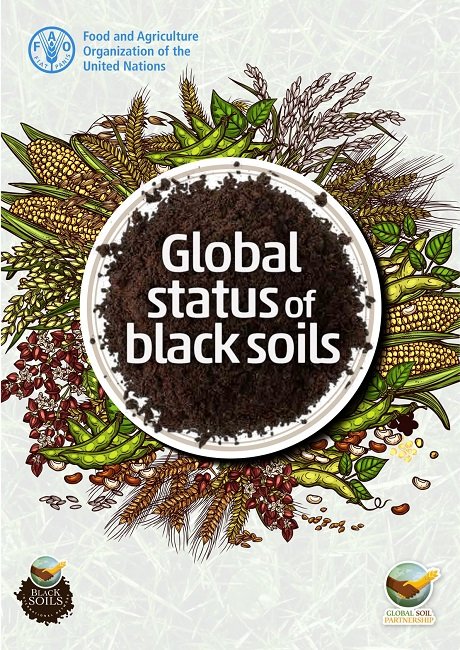 Read this article in French
Read this article in French- Share this article
- Subscribe to our newsletter
Global status of black soils
Black soils are carbon-rich and highly fertile soils known as the world's food basket due to the variability of crops they sustain. For decades, these fertile soils have been widely cultivated and have played a key role in global agricultural production of cereals, tuber crops, oilseed, pastures, and forage systems. In addition, black soils play an important role on climate change mitigation and adaptation. However, this black treasure is under threat. Because of land use change from natural grasslands to cropping systems, unsustainable management practices and excessive use of agrochemicals, most of the black soils have lost half of their soil organic carbon stocks and suffer from moderate to severe erosion processes, as well as nutrient imbalances, acidification, compaction and soil biodiversity loss.
FAO and its Global Soil Partnership are committed to the conservation and sustainable management of black soils and established the International Network of Black Soils. This report provides strategic information about the distribution, state and management of black soils and can guide decision-making regarding sustainable black-soil management and conservation.
Sustainable management of black soils contribute to SDGs
One of the main recommendations of this report is the establishment of a global agreement for the sustainable management (for conservation, protection and production) of black soils. Sustainable management of black soils contributes to the Sustainable Development Goals (SDGs), particularly SDG 1 (No poverty) and SDG 2 (Zero hunger), along with other SDGs such as SDG 13 (Climate Action), SDG 15 (Land degradation neutrality), and SDG 17 (Partnerships for the Goals). It is also aligned with the four betters of the FAO Strategic Framework 2022-2031: better production, better nutrition, better environment, and a better life, leaving no one behind.
(FAO/wi)
Reference:
FAO. 2022. Global status of black soils. FAO, Rome, 2022, no of pages 200. https://doi.org/10.4060/cc3124en. ISBN: 978-92-5-137309-5





Add a comment
Be the First to Comment